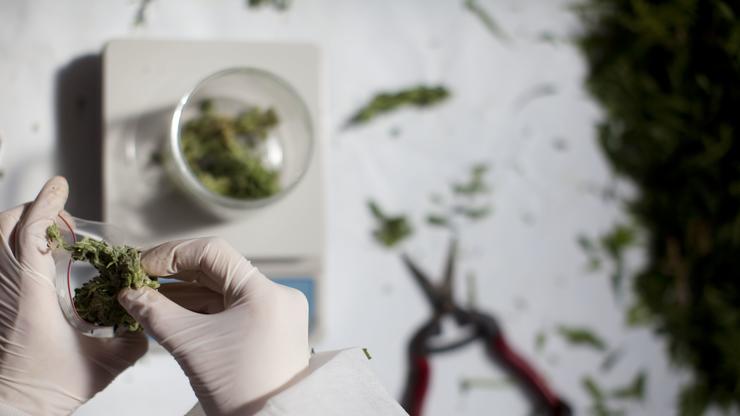The marijuana industry might level up in the coming years.
With around the globe, governments, institutions, and scientists everywhere are experimenting with cannabis to discover how it can be used for medicinal and medical purposes. Now, according to recently published studies in the Nature, Scientific Reports, a new cannabis compound has been discovered to potentially be thirty-times more potent than THC, the psychoactive compound in marijuana.

Justin Sullivan/Getty Images
As of right now, it is unclear whether or not the newly-discovered cannabinoid named tetrahydrocannabiphorol, or THCP, can deliver a more heightened effect than THC. An Italian medical cannabis scientific group known as FM2 identified the compounds when they isolated and identified the mass spectrometry and metabolomics to find the basic chemicals of the molecule.
The Italian scientists also unearthed a cannabis compound known as CBDP, a relative of CBD that is known for its anti-inflammatory, antioxidant, and anticonvulsant activity medicinal components.
The report publishers utilized THCP to bind to human cannabinoid receptors found in the endocannabinoid system and discovered that the compound bound to receptors 33-times better than THC. Dr. Cinzia Citti, the lead author of the research, revealed in a statement:
“This means that these compounds have higher affinity for the receptors in the human body. In cannabis varieties where THC is present in very low concentrations, then we can think that the presence of another, more active cannabinoid can explain those effects.”
In regards to the effects of THCP and CBDP on humans, both compounds can possibly hold potential health benefits that can supersede the effects of THC and CBD alone. While the psychoactive effects of the new compounds have yet to be fully understood, THCP might be able to increase the ‘high’ THC is specifically known for. The study then goes on to state:
“Historically, many of our medicines have been derived by or inspired by natural products. By having new compounds that bind with very high affinity, that will give scientists a new probe into biological sciences.”
Over the past decade, we’ve seen the for its recreational usages, but if cannabis has the potential to become the world-renowned healer that it once was, natural remedies can find their way back to the forefront of the pharmaceutical industry.



